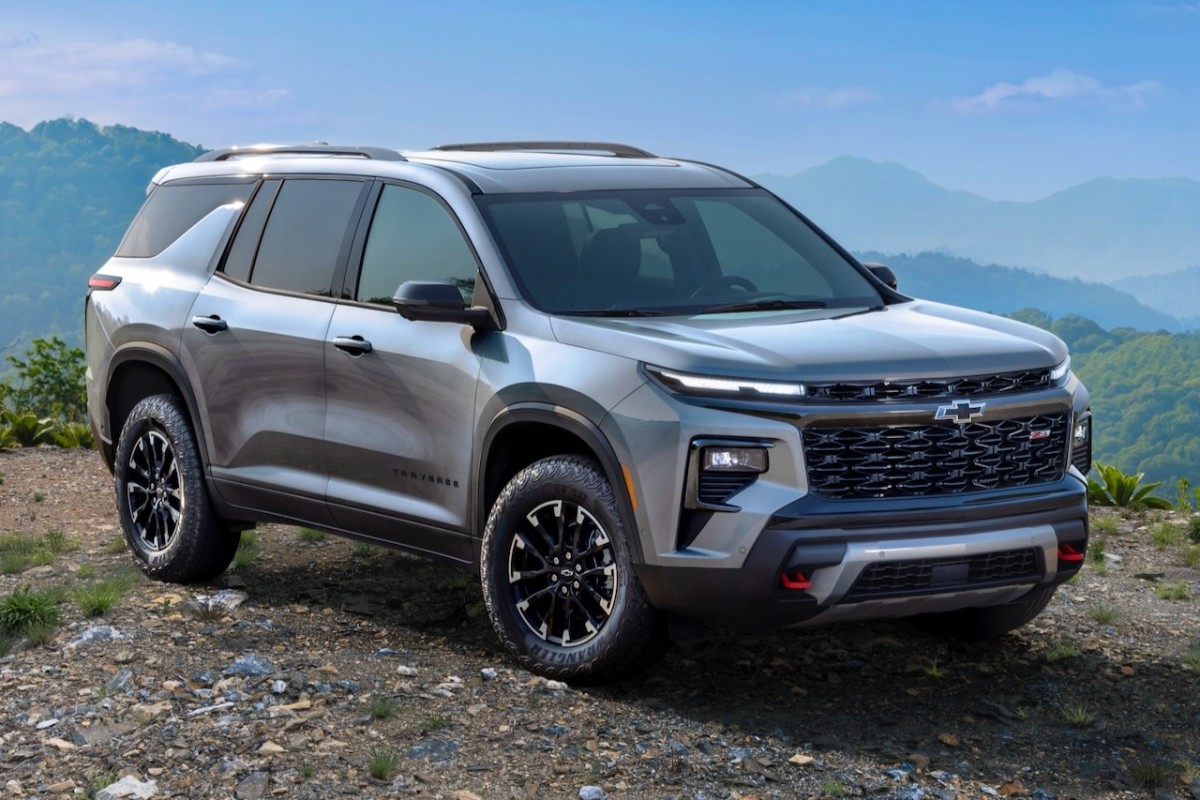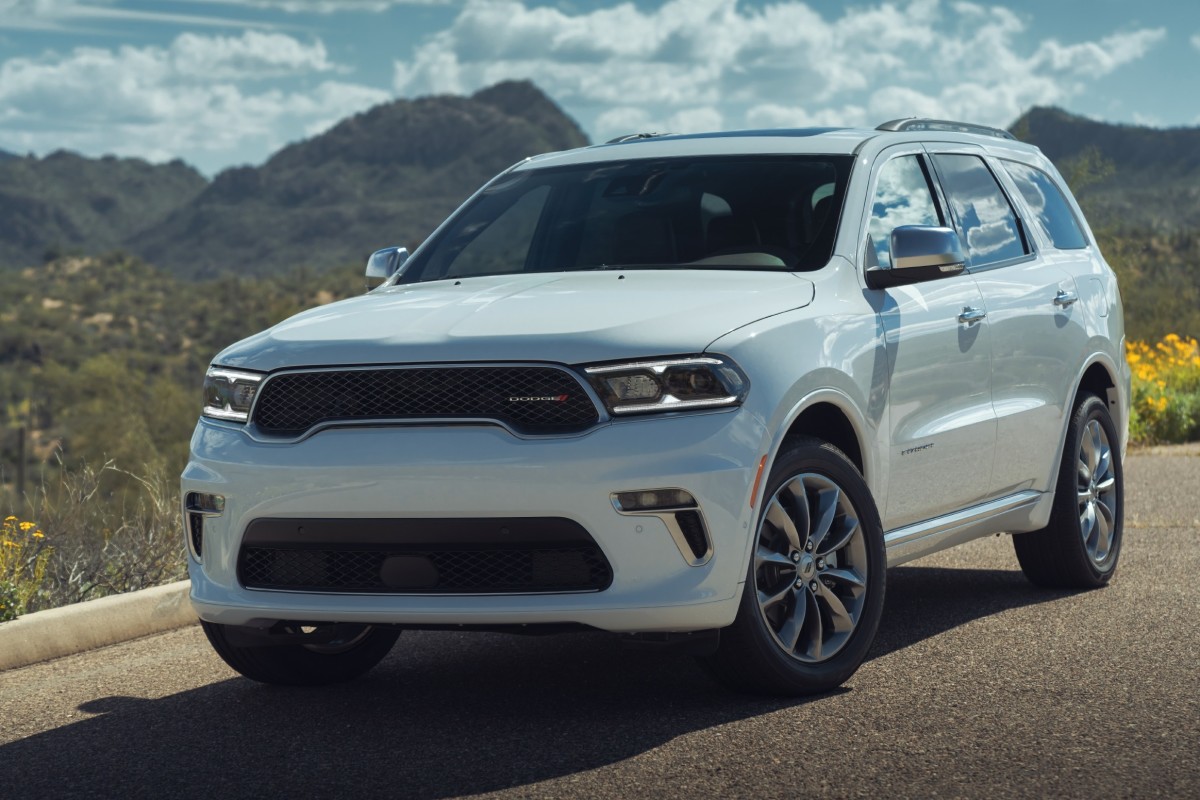Genesis—Hyundai’s luxury arm—made its debut as a standalone brand in 2015 and promptly launched three sedans, but what it really needed to go toe-to-toe with the likes of Audi, BMW and Mercedes-Benz was an SUV. Enter the Genesis GV80. Introduced for the 2021 model year, the Genesis GV80 is a rival for luxury SUVs such as the Audi Q7, the BMW X5 and the Mercedes-Benz GLE. It’s classed as a midsize car, although the GV80 is longer than a BMW X5 and considerably lower.
Combined with a “shoulder line” that sweeps down towards the rear of the car it gives it an unusually sleek shape. The GV80 has the look and feel of a luxury SUV throughout and some observers have suggested a resemblance to the Bentley Bentayga, but in reality, the likeness is limited to the huge, diamond-mesh grille and the area around the taillights.
Inside, the GV80 more than lives up to its premium status, with a stylish and beautifully crafted interior. The dashboard’s minimalist design has echoes of Porsche and the materials are top-notch. Jewel-like details, such as the knurled finish on the gear selector and the rotary control for the infotainment system, give it a real sense of craftsmanship, and there are some plush trim options, including Nappa leather and a range of matte wood trim inlays.
All versions have heated and electrically adjustable front seats, although some may find them too firm for comfort. An “Ergo Motion” driver’s seat—optional for earlier models and standard for later high-end versions—contains individual air cushions that inflate and deflate to maintain comfort or suit different driving conditions. That’s just one of the abundance of high-tech features available, highlights of which include Remote Smart Parking Assist, which allows you to stand outside the car while it parks itself, and Road Active Noise Cancellation, which makes the interior of the car quieter by generating a sound wave that counteracts road noise.
There’s a choice of 2.5-liter four-cylinder (2.5T) or 3.5-liter V6 (3.5T) engines, both with an eight-speed automatic transmission as standard. The 2.5T was initially available with either rear-wheel drive or all-wheel drive (AWD), while the 3.5T was AWD-only. All versions have been all-wheel drive as standard since an update for the 2025 model year.
Our guide to the Genesis GV80 covers which models are available, what to look out for if you’re buying one and how much you can expect to pay.
Genesis GV80 Buying Guide: Cost, Reliability, and the Best Years to Buy
- Frequently Asked Questions
- Genesis GV80 Pros and Cons
- Genesis GV80 Generations
- First Generation (2020-present)
Frequently Asked Questions
Which Genesis GV80 years are the best?
At the time of writing, the Genesis GV80 was such a new car that there weren’t really any good or bad years to speak of. The model has remained much the same since its launch, although you may consider the extra equipment and upgraded infotainment system of post-2024 models worth a little extra.
What are the worst Genesis GV80 years?
It’s too early to say definitively if there are specific Genesis GV80 model years that are worth avoiding. A recall was issued for 2022-2023 models but this work will be, or should have been, carried out for free by Genesis dealers. One thing to note is Genesis’ above-average warranty: five years or 60,000 miles for the car and a 10-year/100,000-mile powertrain warranty means—again, at the time of writing—that most used examples will still be covered.
Is a used Genesis GV80 a good deal?
The Genesis GV80 could be a good deal if you want a high-end SUV that’s a bit different to the usual suspects. It’s distinctive, luxurious and decent value, but doesn’t offer the breadth of choice or fuel-efficiency of key rivals, and some of the tech features are reserved for top-spec models or the options list.
Genesis GV80 Pros and Cons
Pros:
- Looks and feels like a true luxury car
- Roomy, stylish interior
- Lots of advanced features available
Cons:
- Poor mpg, whichever engine you choose
- No full-hybrid or electric option
- Some concerns over seat comfort
Genesis GV80 Generations
First Generation (2020-present)
For a first attempt at creating a luxury midsize SUV, the Genesis GV80 is, in most respects, very successful. Introduced in late 2020, it shares many parts with the concurrent G80 sedan, but these are wrapped in a rakish SUV body that sits slightly higher off the ground. The distinctive design of the GV80 is a big part of its appeal, but it’s also as practical as you’d expect a car this size to be, and keenly priced. It’s available with some impressive and innovative features, although many are limited to high-spec models or costly optional extras. If you’re buying a used GV80, it’s particularly important to check what’s fitted to the car you’re looking at.
The model lineup hasn’t changed much since the car was launched. The entry-level engine is a turbocharged 2.5-liter four-cylinder unit badged 2.5T, which has 300 horsepower and 311 lb ft of torque. Those are respectable numbers, but the twin-turbo 3.5-liter V6 engine (badged 3.5T) is a better fit for the GV80’s size and character, with 375 horsepower and 391 lb ft of torque providing effortless acceleration. Both have an eight-speed automatic transmission as standard and neither gives very good fuel economy, with official combined figures in the region of 20 mpg for all models, so in the real world you may be looking at mpg that starts with a one. Up until its 2025 model-year update, the 2.5T was offered with rear-wheel drive or all-wheel drive, with all-wheel drive standard for the 3.5T. AWD has been standard for all models since the update.
Standard trim level is the entry point, and it’s fairly comprehensive. Highlights for 2.5T models include LED headlights, cruise control, a power liftgate, power-folding door mirrors, 12-way power front seats, power steering wheel adjustment, a rear-view camera, and a 14-inch touchscreen infotainment system with support for Apple CarPlay and Android Auto. There’s also Drive Mode Select, which allows you to tailor the way the throttle and the transmission respond. Safety features include 10 airbags, collision-avoidance assist with pedestrian and cyclist detection, lane keeping assist and blind-spot assist. Standard trim for 3.5T models includes extra features such as a panoramic sunroof, ventilated front seats and a wireless device charger.
The content of Advanced, the mid-spec trim level, also depends on which engine the car has. The extras for the 2.5T include the additional kit that 3.5T cars have as standard, plus a heated steering wheel, matte wood trim and a 21-speaker Lexicon sound system. Additional features for 3.5T Advanced models include three-zone climate control, a head-up display, leather upholstery, heated second-row seats and Genesis' Ergo Motion driver's seat. The pattern continues with top-spec Prestige trim – GV80 2.5T Prestige models get a similar level of equipment to the 3.5T Advanced models, while GV80 3.5T Prestige models gain features such as Nappa leather seating, power-reclining rear seats, 22-inch alloy wheels and Road Active Noise Cancellation. Third-row seats are only available for 3.5T models, in a bespoke Advanced+ trim level.
Things stayed more or less like that until the GV80’s first big update, which took place in 2024 for the 2025 model year. Exterior changes were minor, but the interior looks quite different, with a new dashboard featuring a revised center console and a 27-inch OLED (organic LEDs) display and touchscreen that replaces the previous two separate displays. A new Select trim level was added for the 2.5T and equipment levels were upgraded, so all models now have wireless Apple CarPlay and Android Auto integration and either leatherette or leather upholstery, while the premium audio system is now by Bang & Olufsen. The update also introduced a new Genesis GV80 Coupe model as a rival to the BMW X6, the Mercedes-Benz GLE Coupe and the Porsche Cayenne Coupe. As well as a sloping roofline it, has a new “3.5T E-SC MHEV” powertrain that combines the 3.5-liter V6 with an electric supercharger and mild-hybrid technology, for more power but no increase in fuel consumption.
Pricing has remained competitive throughout the GV80’s time on sale, with the MSRP for entry-level 2.5T model increasing from just below $50,000 at launch to a shade less than $58,000 as of October 2024. That’s not much of an increase, bearing in mind inflation and the extra standard equipment. At the other end of the scale, top-spec versions of the GV80 Coupe have an MSRP of $85,000+.
It’s hard to make a definitive judgment on the reliability of the Genesis GV80 because it’s so new. While its cars look and feel well-made, Genesis as a brand has a mixed reputation for reliability. In the 2022 and 2023 J.D. Power U.S. Vehicle Dependability Studies Genesis ranked fourth and third respectively, but finished in the bottom half of the table in the 2024 edition. One issue that a number of GV80 owners have raised is a badly leaking sunroof, so it could be worth looking out for evidence of water ingress on a test drive. Also be aware that 2022-2023 Genesis GV80 models are subject to a recall related to the fuel pump that could cause the car to stall. On a more positive note, Genesis’ warranty is much longer than average, covering the car for five years or 60,000 miles from new, while the engine and transmission are covered by a 10-year/100,000-mile warranty. It also comes with complimentary scheduled maintenance for three years or 36,000 miles, whichever comes soonest.
You’re unlikely to find any cut-price used Genesis GV80s out there, as most are fairly low-mileage cars that have been well cared for, so command good money. The starting point is about $31,000 for a 2.5T and $34,000 or so for a 3.5T, although for a car of this kind it’s probably worth spending the extra few thousand dollars it costs to get one with less than 50,000 miles on the clock.




